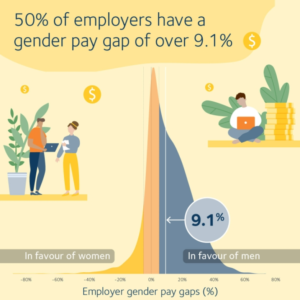There have been a lot of posts this week about the WGEA gender pay gap data. For the first time ever, companies employing more than 100 people have had their gender pay gap data on display for everyone to see.
Who hasn’t looked up their current employer?
Who hasn’t looked up the results of a company they dislike and smirked at their poor stats?
Who hasn’t read the Employer Statements submitted with the data and marvelled at the gender-washing – all those companies who are “proud to be a leader in gender equality” but have pay gaps of 25%+ because the ” gender pay gap is heavily influenced by the shape of the organisation”?
The good thing is that we can revisit this data again each year to see whether these companies really are aligning their practices with their professed values.
Despite what Senator Matt Canavan had to say on the WGEA data, removing gender bias and pursuing equality is a good thing. It’s good for individuals, good for families and good for business – countless studies have shown this. And it’s also just the decent thing for workplaces to do.
Now this might be a controversial opinion, but it isn’t just the organisations that have a role to play – women should also consider what role they can play themselves. The WGEA suggests that women should learn to negotiate their salaries and know their value (admittedly, all of the WGEA articles mentioning this were published in 2018 so they are getting on).
Having spent years helping leaders learn negotiation skills, it is clear to me that men and women have the same innate abilities. However, I have observed very often that women can be reluctant to negotiate when they are asking for themselves (as opposed to asking for the benefit of their family or employer).
Transparency of the WGEA data is a great, great thing and I urge all organisations to keep pursuing equality.
I also urge women to remember that negotiation skills can be learnt; and having helped women negotiate salary increases of up to 28%, I have seen how learning negotiation skills can reap extraordinary benefits.
____
I help leaders use constructive conflict and negotiation skills to be more effective. If this post resonates, get in touch.
